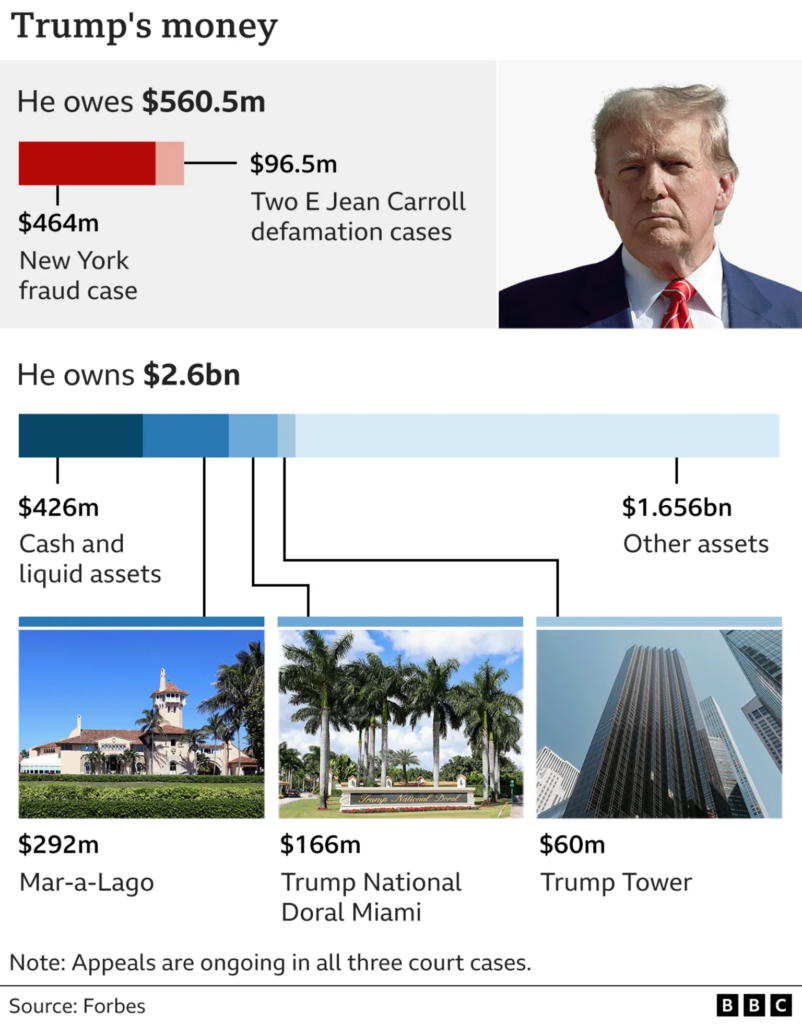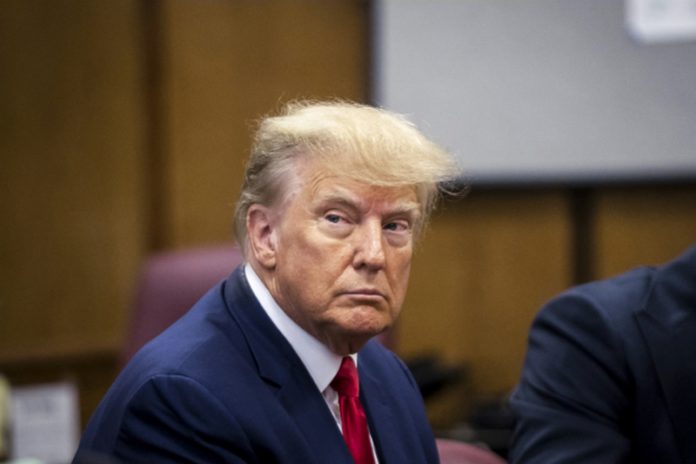Former US President, Donald Trump has posted a $175m (£140m) bond in his New York civil fraud case, staving off asset seizures by the state.
He was found in February to have fraudulently inflated property values, and was ordered to pay a $464m penalty.
Posting bond means New York’s attorney general cannot enforce the penalty, by freezing bank accounts or taking property, until his appeals are heard.
The Republican denies wrongdoing and says the case is a political hit job.
Mr Trump was originally ordered to post bond amounting to the full penalty but it was reduced to $175m last week after his lawyers said it was “impossible” to secure a bond of that size.
If the three judges on the appeal panel rule against him, he will have to come up with the full $464m or risk the dismantling of his fabled property empire.
For now at least, Mr Trump is spared the humiliation of seeing his real estate assets such as Trump Tower in Manhattan and his Mar-a-Lago estate in Florida taken away from him.
In a statement, his lawyer Alina Habba said: “As promised, President Trump has posted bond. He looks forward to vindicating his rights on appeal and overturning this unjust verdict.”
A court filing says Mr Trump secured a bond with the Los Angeles-based company Knight Insurance Group.
The filing did not specify what collateral Mr Trump used for the bond.
The BBC has contacted the insurance group for comment. Its chairman, Don Hankey, told Forbes the former president put up a combination of cash and investment-grade bonds to secure the loan.
Mr Hankey told the outlet he reached out to Mr Trump when he heard he needed a bond and they put together the deal within a few days.
“I’d never met Donald Trump. I’d never talked to him on the phone. I heard that he needed a loan or a bond, and this is what we do,” he said.
The fraud case against Mr Trump was filed by New York Attorney General Letitia James, a Democrat, in 2022.
Justice Arthur Engoron, also a Democrat, broadly sided with Ms James’ argument that Mr Trump should pay a steep price for fraudulently misrepresenting his assets in order to get more favourable loans and interest rates over the course of years.
Mr Trump argued the case had no victims because the banks got repaid with interest and no financial institution sued him for the exaggerated estimates of his net worth.
Justice Engoron also barred Mr Trump from running a New York business for three years.
He was also prohibited from getting loans from New York financial institutions over the same period.

The ruling placed Mr Trump, who has said in depositions and on social media that he has $400m or $500m in cash on hand, under a serious financial crunch.
Forbes Magazine currently estimates his net worth at $5.7bn – it soared after the parent company of his social media platform Truth Social went public last week.
Around the same time he lost the fraud case, Mr Trump had to secure a $91m bond after losing an unrelated defamation lawsuit brought by the writer E Jean Carroll.
It could take months, or longer, for the business fraud case to be decided, raising the possibility the decision could come in the midst of his presidential campaign.
In the meantime, Mr Trump’s first criminal trial – over his alleged attempt to fraudulently conceal hush-money payments to an adult film star ahead of the 2016 election – is scheduled to begin on 15 April in Manhattan.
He has also been charged in two additional cases with trying to overturn his 2020 election loss against President Joe Biden and over his handling of classified documents after leaving office.
Mr Trump has pleaded not guilty in all of those cases.

